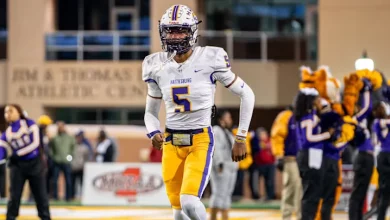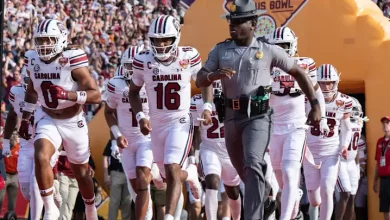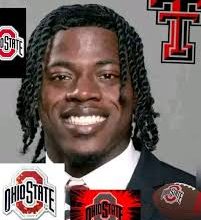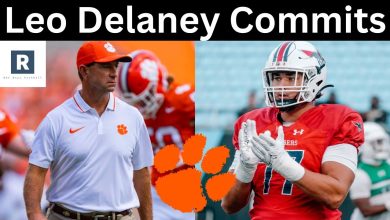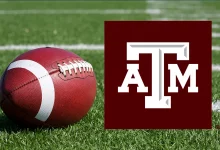Setting the record straight on Nick Saban’s involvement in Alabama recruiting
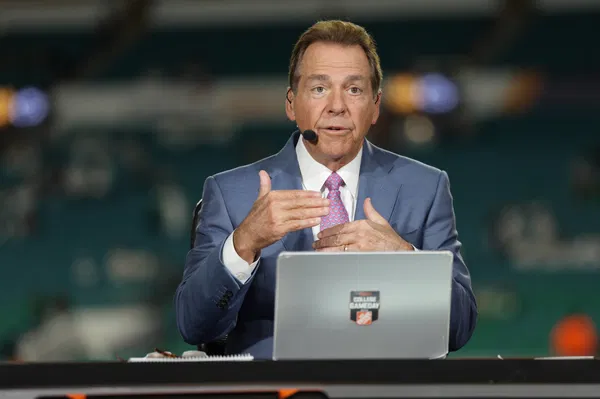
In the ever-passionate world of college football, few names stir conversation quite like Nick Saban. Revered as the greatest coach in the sport’s history, Saban led the Alabama Crimson Tide to six national championships, ushering in an era of dominance that redefined the Southeastern Conference and the broader college football landscape. Now retired, his shadow still looms large over Tuscaloosa—and it’s led to a swirl of speculation, praise, and sometimes confusion about his role in the present-day program, particularly as it relates to recruiting.
So let’s set the record straight: Nick Saban is retired. He is not recruiting for Alabama. He is not the secret weapon behind current five-star commitments. He’s not flying around the country to close deals behind the scenes. While his legacy continues to influence the Alabama brand, the program’s current recruiting efforts are the result of the hard work of Kalen DeBoer, Courtney Morgan, and an entirely new coaching staff that has charted its own course since Saban’s departure in January 2024.
It’s important to understand why this narrative continues to exist—and why it’s unfair not just to DeBoer and his staff, but to the players who are committing to a new vision of Alabama football
To be clear, Nick Saban’s impact on Alabama is permanent. His fingerprints are all over the program. The standards he set, the resources he built, the infrastructure he fought to implement—all of it continues to benefit Alabama long after his departure. From the renovated athletic facilities to the culture of discipline and preparation, Saban’s legacy remains.
But there’s a difference between being the architect of a dynasty and being an active participant in its next chapter.
Some fans and media voices have been reluctant to fully embrace the idea that Alabama could still thrive in the post-Saban era. They see five-star commitments in 2025, like Keelon Russell, Dijon Lee Jr., or Caleb Cunningham, and immediately wonder if Saban is pulling strings in the background. The idea that someone else—especially a coach from Washington with no SEC ties—could carry the mantle has led to some wishful revisionism.
But here’s the reality: Nick Saban has gracefully stepped back. He has not been involved in Alabama recruiting, on the road or on the phone, in any formal or informal capacity. Compliance rules prohibit it, and more importantly, Saban has been clear that he’s content in retirement. He has moved on to his next chapter as a television analyst and public figure, not a recruiter.
There is one kernel of truth that often gets stretched beyond its limits: Saban did recruit some players in the early phases of the 2025 cycle before his retirement. That is absolutely correct. The recruiting calendar means that 2025 prospects—now rising seniors—were on Alabama’s radar as early as the spring of 2023, and Saban was certainly involved at that stage.
He and his former staff extended early offers, hosted unofficial visits, and identified top targets. But that was 18 months ago. Since then, the class has evolved entirely under new leadership. The players now committing to Alabama are doing so after meeting Kalen DeBoer, after visiting under his regime, and after buying into a program that looks very different than it did in the final months of Saban’s tenure.
Take Keelon Russell, for example—the dynamic five-star quarterback from Texas who flipped from SMU to Alabama. He had no prior relationship with Saban. His commitment came after attending camps run by the new staff, connecting with offensive coordinator Nick Sheridan, and building trust with Courtney Morgan. The same applies to Dijon Lee Jr., who picked Alabama over Georgia and Texas A&M after visiting in June 2025 and meeting the entirely new defensive staff.
To say that Saban’s past offers or phone calls somehow laid the foundation for those commitments ignores how critical the final stages of recruitment are. Relationships with the current staff, the system they’ll play in, and their future teammates are what close deals—not offers made a year and a half ago
Credit where it’s due: Kalen DeBoer and GM Courtney Morgan have done a masterful job navigating what could’ve been a dangerous transition period. When Saban stepped down, many assumed Alabama would regress. Instead, they have surged. Currently ranked No. 3 nationally in the 247Sports Composite Rankings, the Crimson Tide have landed more five-star prospects than any other program in the country so far.
That success is a testament to the vision DeBoer has cast—and the tireless energy of Morgan behind the scenes. Together, they have implemented a modern recruiting approach focused on personal relationships, developmental honesty, and strategic NIL planning. They’ve been transparent with recruits about the new era of Alabama football: fast-paced offense, creative defense, and a culture rooted in effort and detail.
It’s worth noting that DeBoer and Morgan did not inherit a staff of Saban protégés. This isn’t the continuation of the old regime—it’s an overhaul. Offensive coordinator Nick Sheridan, defensive coordinator Kane Wommack, and other position coaches brought in from Indiana, Washington, and across the country have introduced new systems, philosophies, and expectations.
If you speak to recruits and their families, they aren’t committing to the “ghost” of Nick Saban. They’re buying into Kalen DeBoer’s ability to win, develop, and care for players. They’ve seen the success he had at Washington. They trust that he and his staff can prepare them for the next level. That’s the pitch that’s resonating—not nostalgia for the past.
There are a few reasons why some continue to insist Saban is still involved. One is simple denial. Fans of rival programs don’t want to believe that Alabama could seamlessly continue its recruiting dominance without the greatest coach of all time. It’s easier to assume there’s a hidden hand behind the curtain.
Another reason is branding. Alabama still sells the Saban mystique, and recruits are still drawn to the logo and the legacy. That’s not the same thing as saying Saban himself is involved. Programs often benefit from their historical weight—USC sells the Reggie Bush era, Michigan sells the Bo Schembechler tradition, and Alabama will always sell the Saban legacy.
But recruits are more plugged in than ever. They know who the head coach is. They know which assistants will develop them. And they’re smart enough to distinguish between a brand and a relationship. If Saban were still recruiting, you’d hear it from the players themselves. Instead, what you hear in interviews is praise for the new staff, for the family atmosphere, and for the honesty in the building.
Perhaps the most frustrating part of this narrative is how it undermines what DeBoer and his staff have accomplished. They walked into a pressure cooker, replacing a legend with 206 wins and a nearly unmatched track record. And yet, they kept the roster intact, won the transfer portal, and are assembling one of the best recruiting classes in the country.
That didn’t happen because of lingering influence from Saban. It happened because the new regime worked relentlessly to build trust, hold standards, and sell a vision. It happened because DeBoer didn’t try to be Saban—he chose to be himself. That authenticity has paid off.
In fact, one of the first things DeBoer did after being hired was fly around the country to meet with 2025 recruits and reassure them of Alabama’s commitment. He didn’t hide behind Saban’s name. He introduced himself. He outlined where the program was going. And in doing so, he convinced elite players to give Alabama a fresh look
As for Saban himself, he’s enjoying retirement—at least as much as someone with his intensity ever can. He’s signed on as an analyst for ESPN’s “College GameDay,” where he’ll provide insights into the sport he helped define. He’s also spending more time with his family and mentoring coaches behind the scenes.
He remains a beloved figure in Tuscaloosa and a source of pride for Alabama fans. But he’s not recruiting. He’s not secretly coaching. And he’s not interfering with the direction of the program.
Saban himself has said that he was ready to step away—that the sport had changed, and it was time for someone else to take over. He left Alabama in the hands of a new leader, and he’s trusted that leader to carry forward the values that made the program great
The truth is, Alabama doesn’t need Saban to be recruiting in 2025. The blueprint he left behind—combined with the innovation DeBoer has brought—has positioned the program to thrive in a new era. The talent is coming. The wins will likely follow.
For recruits, the message is clear: this is a new Alabama. The brand is strong, the standard is intact, and the future is in good hands. The past will always be honored, but the present belongs to a different group of leaders—and they’ve already proven they can recruit with the best of them.
In the end, giving credit to Saban for Alabama’s current recruiting success may seem like a compliment. But it sells short the effort, energy, and excellence being delivered right now, every day, by a new coaching staff trying to earn its own place in Crimson Tide history.



